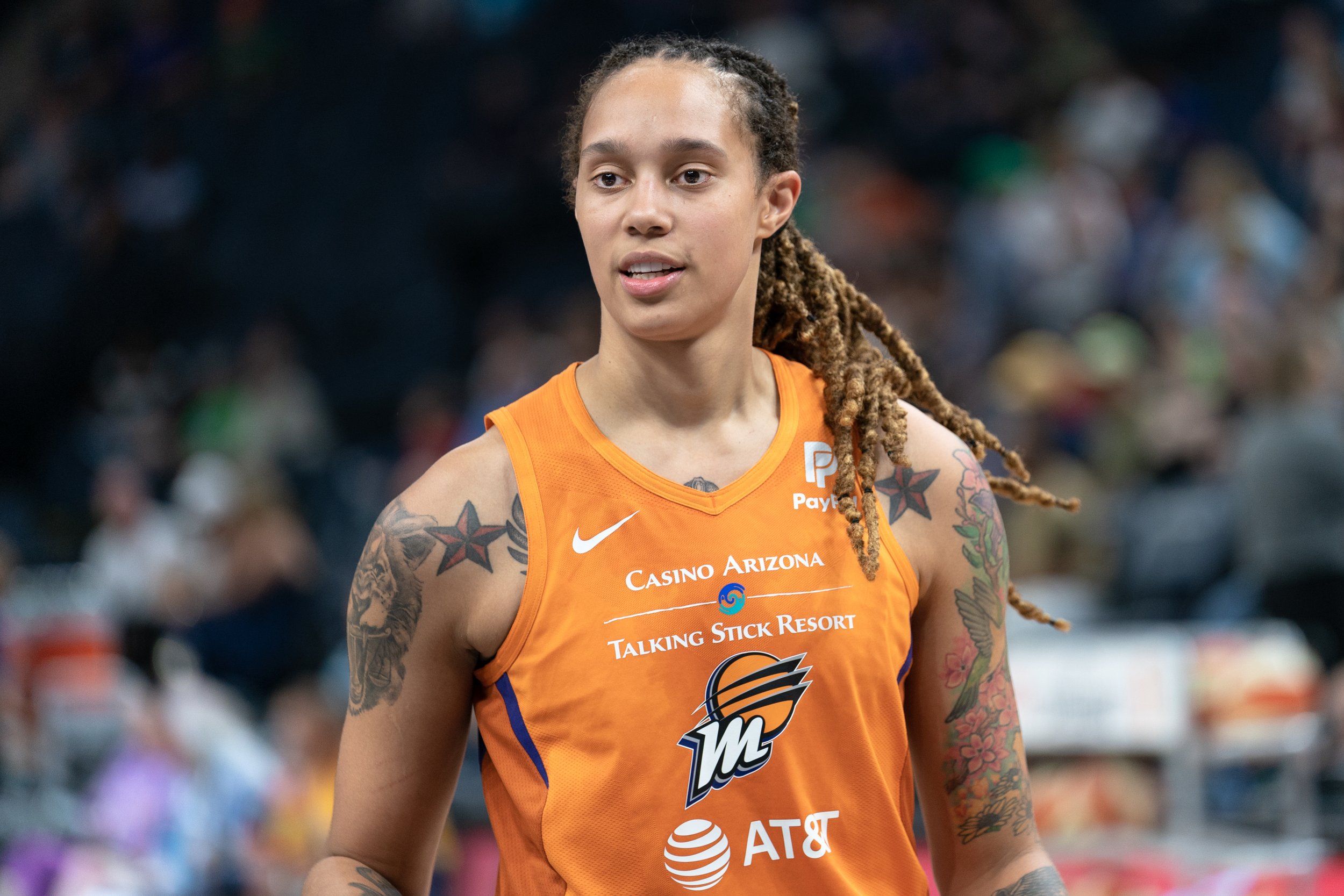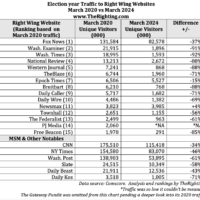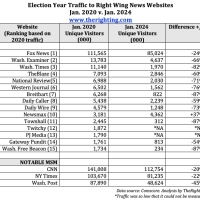
Can Brittney Griner Help to Heal America’s Left-Right Divide?
By Jon Friedman, 5-19-23
Brittney Griner has become a symbol of many thought-provoking concepts. She epitomizes excellence in sports, high-stakes political intrigue and race issues, and she possesses a strong feminist voice.
And now Griner has unintentionally galvanized the right-wing media, with what they refer to as her new-found appreciation for her country. It stems from her decision to acknowledge the “The Star-Spangled Banner” when it played at a Phoenix Mercury game. (Griner plays for the Mercury.)
The media outlet Red State blared earlier this month: “Brittney Griner Sounds a Different Tune on the National Anthem After Stint in Russian Prison.” (“Stint,” they say! Gimme that again. Griner was not exactly participating in a goodwill tour in Russia.)
The Divide
It will take time for us to conclude whether Griner has helped close – or perhaps even widen – that infamous red-blue divide.
Through the trademark grit and tenacity that has made her a WNBA star, Griner survived 10 months in a Russian prison. After being sentenced to a nine-year term, Griner was freed in a highly controversial prison swap last December. Viktor Bout, the “Merchant of Death” arms dealer, was released from an American jail.
In one of the great feel-good sports and humanitarian stories in recent times, Griner has resurfaced in the U.S. after she was put behind bars when Russian authorities found cannabis oil in her luggage.
Clear Outcome
One outcome is certain, though: Griner has also emerged as the latest example in which the lines of sports, activism and politics have blurred.
Some might point to Jackie Robinson breaking the color line in Major League Baseball as being the trailblazer in this arena. Later, Muhammad Ali refused to be inducted into the U.S. military at the height of the Vietnam War.
The single most stunning and memorable image of this phenomenon occurred at the 1968 Mexico City Olympic Games. Black American track and field medal winners Tommie Smith and John Carlos stood at the podium as the national anthem played, lowered their heads and raised their fists to the sky in a Black Power salute.
Also in 1968, 21-year-old Lew Alcindor of New York City and UCLA, then the greatest college hoops star in the land, declined to play for the U.S. team as a sign of protest against the way Black people were being mistreated in his home country. (Alcindor soon after took on the Muslim name of Kareem Abdul-Jabbar. He went on to become one of the greatest players in NBA history and is now enjoying a career as a respected media commentator.)
Meanwhile, young George Foreman showcased an American flag to celebrate winning the heavyweight boxing gold medal in the same 1968 Olympic Games.
Four years later, in Munich, sports and politics intersected again, tragically and horrifically, when Israeli athletes were murdered in the Olympic Village.
In the 1980 Winter Olympics, the American ice hockey team produced one of the greatest upsets in sports history when it defeated the powerful Russians and captured the gold medal. The triumph spurred much patriotism as U.S. amateurs taught Soviet professionals a lesson.
The good feeling had stopped, though, by the time President Jimmy Carter ordered a boycott of the 1980 Summer Olympics in Moscow, as a peaceful but forceful way to protest the Soviet invasion of Afghanistan.
Activism Today
In the past decade, activist sports stars have dominated headlines. San Francisco 49ers quarterback Colin Kaepernick took a knee during the playing of the national anthem at a 2016 pre-season game to protest police brutality and racism.
The right-wing media reacted furiously, challenging Kaepernick’s patriotism. Kaepernick lost his job in the image-conscious NFL and forfeited millions of dollars in potential earnings. But he inspired American athletes to speak out against injustice.
In 2018, Fox primetime host Laura Ingraham – speaking for many right-wing pundits who oppose left-wing activist sports stars – told basketball superstar LeBron James to “shut up and dribble” and not talk publicly about political issues.
James, who is widely respected for his efforts in convincing young people to register to vote, ultimately served as executive producer on an excellent documentary entitled – you guessed it! – “Shut Up and Dribble.” James got the last laugh on his critics.
Sports stars will continue to inflame and inspire people in the U.S. with their many brands of activism.
But I bet that no one will ever tell Brittney Griner to shut up and dribble.
Jon Friedman wrote MarketWatch’s Jon Friedman’s Media Web column from 1999 to 2013 and has taught classes in journalism and other subjects at Stony Brook University. for the past decade. He is the author or co-author of three books and has been published in The New York Times Magazine, The Wall Street Journal.com, The New York Times Sunday Business Section, The New York Post, Our Town and the websites of such publications as Esquire, Psychology Today and Time.
Interested in more news about right-wing media curated especially for mainstream audiences? Subscribe to our free daily newsletter.
Griner has unintentionally galvanized the right-wing media, with what they refer to as her new-found appreciation for her country. It stems from her decision to acknowledge the “The Star-Spangled Banner” when it played at a Phoenix Mercury game. (Image: Wikimedia Commons)
























